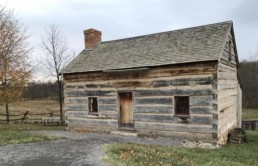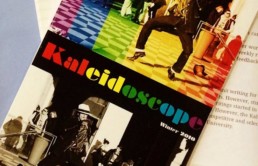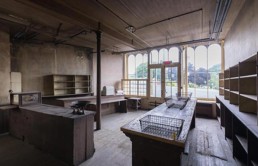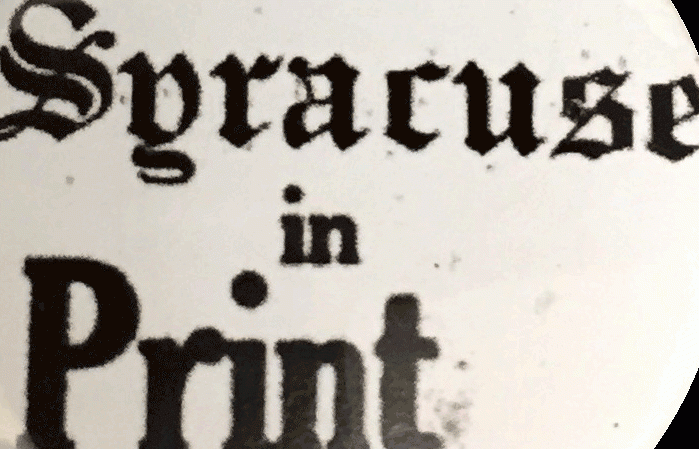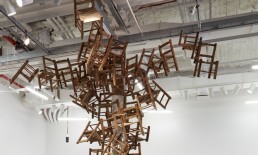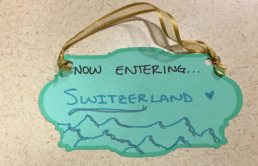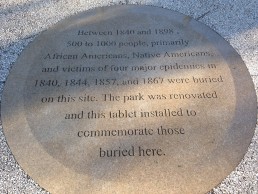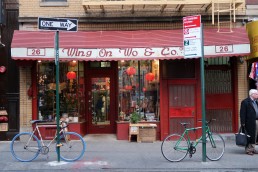Remember the Triangle Fire
A night of multi-media commemorating the Triangle Shirtwaist Factory fire and supporting continuing efforts to improve labor conditions around the world.
by Valeria G. Castelli
Event
Share
As a 2015-16 Public Humanities Fellow, Valeria G. Castelli organized a public humanities event in partnership with the Remember the Triangle Fire Coalition—a nonprofit organization founded in 2008 that educates the public about the 1911 Triangle Shirtwaist Factory fire through artistic, educational, and memorial projects (http://rememberthetrianglefire.org/). This event, entitled “Remember the Triangle Fire” (http://www.casaitaliananyu.org/node/6555), took place at Casa Italiana Zerilli-Marimò at New York University on March 24, 2017, the eve of the 106th anniversary of the fire that caused the death of 146 garment workers, of which 123 were women. Most of the victims were Jewish and Italian immigrant girls. The event explored how art can keep alive the memory of the Triangle Fire, and the fire’s significance for the history of the US labor movement. It also addressed contemporary themes related to workers’ rights and labor exploitation. Humanities New York and the NYU Center for the Humanities (https://nyuhumanities.org/) co-sponsored the event together with the Italian American Writers Association (https://iawa.net/), the National Organization of Italian American Women (http://www.noiaw.org/), Casa Italiana Zerilli-Marimò (http://www.casaitaliananyu.org/), and the Calandra Italian American Institute (https://calandrainstitute.org/).
"Remember the Triangle Fire" Event
The public humanities event opened with a theatrical performance by the socially engaged playwright, actor, performance artist, and activist LuLu LoLo. LuLu LoLo’s work is born out of her passion for historical research, especially about women’s struggles in New York City, and her commitment to social justice (http://www.lululolo.com/). At Casa Italiana Zerilli-Marimò, she performed an excerpt from her one-act play, “Soliloquy for a Seamstress: The Triangle Shirtwaist Factory Fire” (http://www.lululolo.com/theater/soliloquy.html). Lulu Lolo portrayed Sara Saracino, a young seamstress who tells her sister, Tessie, about her dreams for the future and her hard work at the The Triangle Shirtwaist Factory, where they would soon die in the fire. Lulu Lolo also brought to life the character of an eyewitness to the fire, the reporter William Gunn Shepher, who narrates the tragic event unfolding in front of him, and later recounts the trial that acquitted the factory’s owners.
Lulu Lolo’s moving performance was followed by a screening of the documentary film Triangle (2014) by Italian filmmaker Costanza Quatriglio (https://www.youtube.com/watch?v=JvODWqCok1g). Triangle sheds light on illegal labor in the garment industry today, focusing specifically on the unsafe working conditions of under-the-table laborers in Italy. It does so by dealing with the collapse of a building that killed five women in Barletta in Apulia in 2011: four of these women were working illegally in a clothing factory in the building, and one was the factory owner’s daughter, who happened to be inside the building at the time of the collapse. Triangle, which is built around the testimony of Mariella Fasanella—the only person extracted alive from the debris after seven hours trapped in the ruins of the building—establishes an analogy between this tragic event and the Triangle Shirtwaist Company factory fire in New York a century earlier. As Quatriglio’s documentary shows, although similarities unite the victims’ lives and deaths across one hundred years and two continents, the aftermaths of these events proved to be quite different: the Triangle Fire intensified the protests and strikes that had been happening that year for better working conditions, and gave birth to a new awareness of workers’ rights; the building collapse in Barletta, by contrast, quickly disappeared from the news and the public discourse.
After the screening of Triangle, Mary Anne Trasciatti—the President of the Remember the Triangle Fire Coalition and Associate Professor of Writing Studies and Rhetoric at Hofstra University—spoke about the history and mission of the Remember the Triangle Fire Coalition. She also described the many and creative artistic ways in which the Coalition has been raising awareness about the memory and legacy of the Triangle Fire. One example she cited was “Chalk,” a public intervention started by artist Ruth Segel in 2004, which sees on the day of the anniversary volunteers across New York City inscribe in chalk the names and ages of those who died in the fire (http://streetpictures.org/chalk/). Further, Trasciatti pointed out what still ought to be done to guarantee workers’ rights and safe working conditions today, especially in the garment industry. For example, she reminded the Casa Italiana audience of the fire that killed 117 garment workers and injured more than 200 people at the Tazreen Fashion Factory in Dhaka, Bangladesh, on November 24, 2012. In her presentation, Trasciatti devoted special attention to the Coalition’s work in erecting a permanent public memorial at the site of the Triangle Fire (http://rememberthetrianglefire.org/memorial/). In 2015, Governor Andrew M. Cuomo announced that the state of New York would grant $1.5 million to build the memorial. Since then, the Remember the Triangle Fire Coalition has been engaged in fundraising activities to maintain the memorial and fund scholarships for the children of garment workers and for students studying labor history.
About this Fellow
Throughout more than fifteen years working in academia and with non-profit organizations in the United States and Europe, Valeria G. Castelli has committed herself to advancing ideas, initiatives, and alliances that promote the use of the arts and humanities to build a more just, equitable world. Her scholarly research and public humanities projects have focused in particular on how the arts and humanities can catalyze social change and culture shifts by disrupting narratives that fuel inequality and racism.
Valeria received her PhD in Italian Studies at New York University in 2016 with a dissertation on the rhetoric, ethics, and politics of contemporary Italian documentary films about social crises underexposed in mainstream Italian media, such as the precarious lives of migrants or protests for workers’ rights. She is currently a Visiting Research Scholar at The Zolberg Institute on Mobility and Migration at The New School, where her research focuses on recent documentaries on child migration to Europe. Prior to joining The Zolberg Institute, Valeria was a 2017-18 Postdoctoral Research Fellow at the Mahindra Humanities Center at Harvard University. Here, she analyzed the communicative design and rhetorical strategies adopted by filmmakers in their documentaries to challenge stereotypical and racist public narratives about migrants. In 2016-17, Valeria was a Postdoctoral Teaching Fellow in the Core Curriculum at the College of Arts and Science at New York University, as well as a Connected Academic Proseminar Fellow at Modern Language Association. At the MLA, Valeria contributed to the organization’s goal of broadening the scope of career opportunities for doctoral candidates in the humanities.
Valeria has published in top-ranked international peer-reviewed journals, such as Studies in Documentary Film and The Italianist, as well as in the art magazine Flash Art. She has worked as Managing Editor of the online peer-reviewed journal Gender/Sexuality/Italy. Valeria has also worked as Curriculum Manager at Older Adults Technology Services, where she designed and developed educational programs that help low income, socially isolated older adults increase their social connections through the use of technology, from social media to digital storytelling platforms. Valeria holds a MA in Italian Studies from University College of London, and a MSc in Analysis, Prevention and Combat of Organized Crime and Corruption from University of Pisa.
Hero images: Left – Photograph by Molly Engelman; Right – Photograph by RJ Mickelson, Courtesy of Remember the Triangle Fire Coalition and Wikimedia Commons.
Related Content
Upstate Historical
An interactive website that brings the rich history of Upstate New York to life through stories and tours…
The History Buffs
A podcast series—founded by seven historians from Buffalo, NY—that explores diverse topics from a historical perspective…
The Kaleidoscope Project
The Kaleidoscope Project was founded on a simple premise: when kids have access to stories that validate their lives, they feel more empowered to learn.
The Sunday List
A restoration of a bakery run by Jewish immigrants that served the entire community in Kingston, NY for about 80 years.
November 1, 2018Oral History,Remembrance,Local History,PreservationExhibit
Syracuse in Print
Syracuse in Print celebrates our analog now by partnering with local libraries, makerspaces, and other community organizations that value print culture in its eclectic, varied forms.
Bordering the Imaginary: Art from the Dominican Republic, Haiti, and Their Diasporas
An art exhibition and related programming that explored the historical relationship of the Dominican Republic, Haiti, and their diasporas in New York.
Literature in Medicine
A project bringing college students into local hospitals to explore the intersection of art and health.
Making the Public History Classroom Public
Fieldwork by students at the Olde Towne of Flushing Burial Ground Conservancy which resulted in major projects throughout New York City.
September 10, 2019Local History,Education,PreservationSchool Curriculum
Chinatown Movements: Past, Present, & Futures
A series of public events highlighting historic and contemporary social movements in Manhattan's Chinatown.
September 11, 2019Oral History,Remembrance,Local History,Preservation,DiasporaEvent
Learning the Seneca Indian Language
A website introducing visitors to the Seneca Indian language.
September 16, 2019Language,Preservation,Native AmericanWebsite









